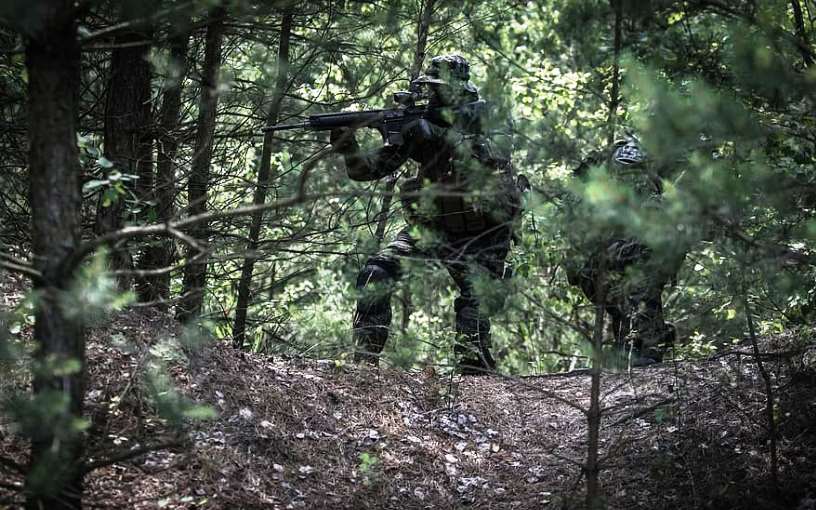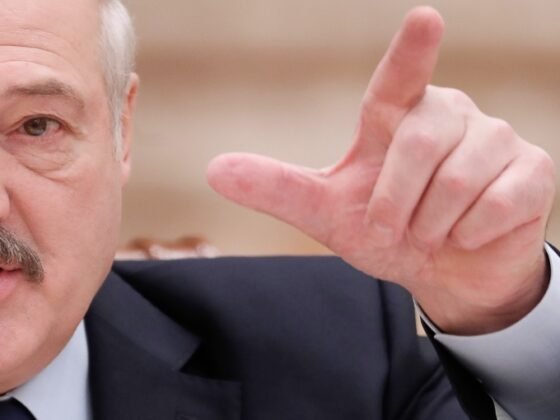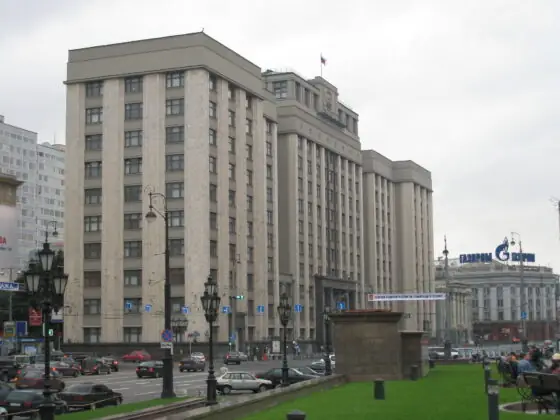(PONARS Eurasia Policy Memo) Just when you think you know where Russia’s Wagner Group “private” military company (PMC) is deployed, it pops up somewhere else. In the past year, its members have been spotted in Mozambique, Libya, and Belarus, adding to their prior roles in eastern Ukraine, Syria, Sudan, and the Central African Republic (and perhaps Mali). The odds are that the Wagner Group may soon be heading back to Syria, too. Provided here is a brief update on the Wagner Group’s new activities since the fall of 2019, highlighting their use by the Russian state, their repeated failures, and their human rights abuses. It follows my two earlier PONARS Eurasia policy memos on the Wagner Group’s activities in Africa, as well as a more comprehensive 2019 article in Post-Soviet Affairs and my congressional testimony from July 2020.
Understanding the Wagner Group
There are quite a few Russian private security companies, but none are as prominent as the Wagner Group. While its deployments and activities are constantly morphing, the pattern of the Wagner Group’s use is consistent. It carries out experimental and high-risk military and security activities on behalf of the Russian state, allowing Russian President Vladimir Putin to expand Russia’s international security footprint while avoiding casualties for regular Russian forces. The group is followed so closely by investigative journalists wherever it goes now that it no longer really serves a plausible deniability role for Russia on the global stage. Yet its supposedly “private” status allows Putin to disavow its activities at home, despite having publicly encouraged the Wagner Group to “pursue their business interests in any spot on the planet.”
Hacked phone and internet records that were newly publicized and analyzed in August by the Bellingcat investigations team make clear that Wagner is a creature of the Russian state, closely tied to its military intelligence agency (the GRU)—and not really a PMC at all. Indeed it has been known for years that the Wagner Group trains in Molkino, Krasnodar, next to a GRU special forces (spetsnaz) training camp, and there is a great deal of additional evidence that Wagner has always been a Russian state tool. While many media sources in both Russia and the West refer to the Wagner Group as a “mercenary” organization, it really is not that either: its members do work on contract, but are fiercely patriotic (or at least pro-Russian, since some hail from Belarus, Ukraine, Moldova, and Serbia).
Wherever it goes, the Wagner Group is usually simultaneously enmeshed in mining and energy contracts that are supported by the Russian state and associated with Putin’s close crony Yevgeny Prigozhin. Often Prigozhin’s companies get a cut of the proceeds for providing security at mineral extraction sites, when the Wagner Group is also contracted to provide more standard security assistance to states or local militia leaders. While many analysts (including myself in some earlier publications) have referred to Prigozhin as the “owner” of the Wagner Group PMC, there is actually no hard evidence that this is the case, or that the Wagner Group even exists as a standard firm. All of the evidence we have indicates that Prigozhin is instead simply a deal-maker and middleman who contracts with the Russian state and its foreign allies for the services of the veterans that he hires.
There is also no publicly available evidence that Prigozhin is making much of a profit from his deals. This has led to speculation—especially given his nine-year imprisonment as a young man in Soviet times for organized crime activities—that Prigozhin may be using these contracts to engage in money-laundering or other criminal activity like smuggling, with the full knowledge and support of the Kremlin.
So what new activities has the Wagner Group taken on over the past year?
Mozambique
The Wagner Group was first reported to be fighting against Islamist rebels in the northern Mozambican province of Cabo Delgado in September 2019. Several hundred Wagner Group members were believed to have been flown in on contracted Russian military transport planes, following a visit by President Filipe Nyusi to the Kremlin to sign mineral and energy extraction deals. Beyond its rich natural gas resources, Cabo Delgado’s Indian Ocean port of Pemba is a major global smuggling node for locally mined rubies and illegal Congo basin ivory, as well as heroin bound for Europe from Afghanistan.
But the Wagner Group had bad luck in Cabo Delgado and did not stay for long. In at least two separate incidents, its units incurred grisly casualties when they were ambushed by rebels. It is also believed that they quarreled with regular Mozambican army forces, who saw them as competitors for the smuggling payoffs they had long enjoyed. By March 2020, the Wagner Group was reported to have left Mozambique entirely, replaced by much more effective South African mercenary forces. Even an alleged cooperation offer from U.S. mercenary group leader Erik Prince, who had earlier provided gas logistics and fishing venture security in Mozambique through his Chinese company, was not enough to get the Wagner Group to stay. Moscow apparently rejected Prince’s offer.
Libya
According to a confidential United Nations report from May 2020 (denied by Russia and never officially released, but widely leaked in mainstream media), the Wagner Group has been in Libya since October 2018. They have helped train and equip warlord Khalifa Haftar and his Libyan National Army (LNA), based in the eastern city of Benghazi, to fight against the UN-recognized Government of National Accord (GNA) in Tripoli. Haftar has also been aided by an infusion of weapons, including Russian-made weapons, supplied by the UAE and Egypt.
But in the fall of 2019, the Wagner Group presence soared, as hundreds of newly flown in Russian precision snipers acted as a force-multiplier for Haftar’s offensive drive against the capital. By May 2020, it was believed that somewhere between 800 and 1,200 Wagner Group forces were on the ground. (Additional Russian security firms, including the RSB Group, were also known to be present, although not in combat roles.) A leaked September 2020 UN report indicated that Russia sent 338 military transport flights to Libya from Syria between November 2019 and July 2020 to provide logistical support to the Wagner Group and the LNA in violation of a UN arms embargo.
Haftar’s effort failed in late May 2020, as Turkish forces intervened on behalf of the GNA with decimating drone strikes against LNA forces and its Wagner Group allies. The greatest embarrassment occurred when the GNA captured an advanced Russian Pantsir-S1 air defense system from the LNA, and paraded it around Tripoli. Following the rout, a large number of Wagner Group forces were evacuated with their heavy equipment, first to an airfield at Bani Walid (southeast of the capital), and then to the remote Jufra airbase in the central Libyan desert. The mayor of Bani Walid told a journalist that protests broke out when the Wagner Group landed there, as protestors accused the Russians of attacking Libyan civilians. Some believe that the relatively seamless withdrawal, which removed Wagner Group forces from Tripoli over the course of eight hours using three military airplanes, with their heavy equipment being driven out on trucks, must have been the result of some kind of deal with the GNA and its Turkish backers.
According to Libyan sources, Haftar was so angry at what he perceived as the Russian failure that he threatened to withhold $150 million he owed on the Wagner Group’s contract. His anger may have stemmed from the fact that at least 300 of the Wagner Group forces fighting on his behalf were actually relatively unmotivated former Syrian Free Army rebels. These new forces were recruited from Russian-held territory in southwestern Syria and trained in Homs by Wagner Group representatives, who promised them and their families better treatment at home in Syria if they served in Libya.
At the same time, 14 advanced MiG-29 fighter jets and several Su-24 attack aircraft were flown from Russia to the Jufra base via Syria and Iran, with their markings painted over to hide their Russian origins. Their apparent purpose was to defend the remaining LNA stronghold in the eastern half of the country from GNA and Turkish attacks, perhaps allowing Russia to establish a permanent military base there. U.S. Africa Command (AFRICOM) said that inexperienced Wagner Group forces were being trained to fly those planes, although that claim has not been verified. There is no publicly available evidence that Wagner Group forces include air force veterans, and this would be the first time that Wagner Group members were flying anything other than helicopters.
Meanwhile, AFRICOM released photographic evidence indicating that Wagner Group forces laid booby traps, minefields, and improvised explosive devices amid civilian areas extending from Tripoli to the LNA frontline in the coastal city of Sirte, in a horrible violation of the Geneva Conventions. Human rights groups report that those bombs have killed 61 people while wounding over 100.
In June, the Wagner Group repeated a move from a prior LNA playbook, occupying Libya’s largest Sahara oilfield in order to block exports and sap GNA revenue. By July, Russia was reported to have increased its military transport flights to 75 per month, and by September, 5,000 Russian-supplied forces (including Syrians as well as other Wagner Group forces) were said to be deployed in Libya, including around all major oil fields. Despite frequent talk of an LNA/GNA and Russian/Turkish ceasefire, Libya remains tense as this memo goes to press.
Belarus
The weirdest Wagner Group sighting of 2020 took place in late July, in a resort outside Minsk just before the heavily contested August 9 Belarusian presidential election. The information about this case is so fragmentary and conflicting that it is hard to draw any real conclusions. (Much of the best information was collected in the Twitter feed of analyst Rob Lee, who followed Russian-language media and social media surrounding the events in depth. Additional information comes from the reporting of Russian investigative journalist Lilia Yapparova.) While it is known that the majority of the 33 men involved had served in the Wagner Group in the past, it is not clear that this was even a Wagner Group action. It may instead have been arranged by a different St. Petersburg outfit called MAR PMC.
Here is what we know for sure. Thirty-three men, most of them Russians, but including one dual Russian-Belarusian citizen, were arrested by Belarusian security forces. Embattled Belarusian President Aliaksandr Lukashenka initially claimed that they were Russian mercenaries sent in to disrupt the election and that their entire group numbered 200. This made no sense at all, especially because Lukashenka relies on Putin for political support. Adding to the implausibility of the claim, the men were unarmed, but dressed in military drab and carrying military gear, while staying together in a resort under their own names. As Lee notes, this implies that they were there with the full knowledge of the Belarusian security forces and that such groups may have appeared in Belarus regularly. They made no attempt to hide their identities or professions, and without weapons, they could not have done much to harm the Belarusian authorities.
The men claimed to be just passing through Belarus, staying in the resort after having missed an international flight out of Minsk at a time when Russian airports were closed because of COVID-19. They were indeed each carrying plane tickets for a flight they had missed to Istanbul. Sudanese cash and a Sudanese phone card were found on one of them, implying they may have been going to Sudan, where Wagner is known to have operated as recently as 2019. (There is credible evidence that the Wagner Group provided assistance to ousted leader Omar al-Bashir as he used deadly force against protestors, leading Washington to impose additional sanctions on the Wagner Group and its network of financial enablers in July 2020.)
Russian authorities claimed the men were actually going to South America, even though it is unclear whether the Wagner Group per se has ever been there. There certainly are Russian contractors in Venezuela doing guard duty at oil extraction sites and accompanying Russian weapons exports, but widespread Western reports that these were Wagner Group members were thrown into doubt by Russian investigative reporters from Meduza in July 2019. Regardless of where they were headed, it is odd that known Wagner Group forces would have chosen to take a connecting flight through Istanbul, given that Russia and Turkey are on opposite sides of the deadly conflict in Libya—and Turkish security forces would have presumably considered Wagner Group members as enemy forces worthy of being detained.
The most bizarre claim, first reported by the Russian tabloid Komsomolskaya pravda, later supported by journalists from two Ukrainian investigative media sites (Ukraiins’ka pravda and Censor.net) citing anonymous sources, and in the end repeated by Putin himself, is that the whole thing was engineered by the Ukrainian intelligence services (the SBU), perhaps with U.S. help. Supposedly, the commercial flight to Istanbul was going to be diverted to Ukrainian territory due to some made-up emergency, allowing Ukraine to prosecute some of the men for war crimes committed when they earlier worked on behalf of Russian and eastern Ukrainian separatists in the war in Ukraine. While Kyiv did ask Minsk to extradite several of the men for those earlier war crimes, another report from RFE/RL’s Russian service (svoboda.org) noted some logical inconsistencies in the intelligence services story.
In the end, all of them except for the one with dual citizenship were extradited home to Russia, where their fate remains unknown. We may never know the true story of what Wagner Group members were doing in Belarus.
Back to Syria?
Finally, the Wagner Group may be returning to Syria, if it is not already there. Its ignominious February 2018 attack on U.S. special forces at a Conoco gas plant in Deir al-Zour caused several hundred Wagner Group-led troops to be decimated by U.S. airstrikes. It would not be surprising if this made the group wary of returning. Yet two firms associated with Prigozhin signed a deal in December 2019 to develop three new oil and gas field blocks in central and eastern Syria—and guarding those extraction sites is exactly the kind of task that the Wagner Group typically takes on.
One of these (Block 7) spans Deir al-Zour province. Inconveniently for Russia, this still includes the territory of the U.S. security zone in Syria, supposed recognized by Moscow in deconfliction line agreements dating to 2015. Russia has increasingly violated those agreements. It was in this zone that regular Russian troops reportedly injured seven U.S. soldiers in August 2020, by intentionally sideswiping their armored vehicle as a Russian military helicopter buzzed overhead. If the United States remains in Syria going forward, it may find itself in conflict with the Wagner Group in Deir al-Zour again, especially if Putin’s goal is to try to harass the United States into leaving, while avoiding casualties for his own uniformed forces.
Conclusions
While the mysteries surrounding Wagner Group deployments seem to grow by the week, it is clear that they are currently being used by the Russian state for a variety of risky security activities in the Middle East and Africa. It is also clear that they are not really a PMC, but instead a tool in Putin’s untraditional or “hybrid” military arsenal, and that their use is connected to Russian state-supported mineral and energy extraction deals (which may have a criminal component).
Their deployment is increasing with time, in spite of their repeated failures (in Deir al-Zour in 2018, in Cabo Delgado in 2019, and in Haftar’s assault on Tripoli in 2020). This suggests that they are being used in situations that the Kremlin considers relatively peripheral, where it is not worth the expense in blood and treasure to send more reliable regular Russian troops. Increasingly the Wagner Group seems to be less of a purely Russian organization and more of a hybrid itself, using forces recruited rather quickly in Syria. This reinforces the sense that their use is for peripheral proxy actions, and not on behalf of the key interests that matter most to Putin. Russia’s supposed allies are being rooked if they are paying good money for Wagner Group contracts because they are not getting Russia’s best fighters.
Meanwhile, the Wagner Group is gaining an international reputation for the indiscriminate abuse and killing of civilians—again something that would not seem to be in the interests of foreign state leaders attempting to bolster their chances of staying in power. The Wagner Group is an ugly failure, and yet Putin turns to it again and again.
Kimberly Marten is Professor and Chair of the Political Science Department at Barnard College, Columbia University.
[PDF]
See:
Kimberly Marten, “Into Africa: Prigozhin, Wagner, and the Russian Military,” PONARS Eurasia Policy Memo No. 561, January 2019.
Kimberly Marten, “Russ-Afrique? Russia, France, and the Central African Republic,” PONARS Eurasia Policy Memo No. 608, September, 2019.
Homepage image credit.











